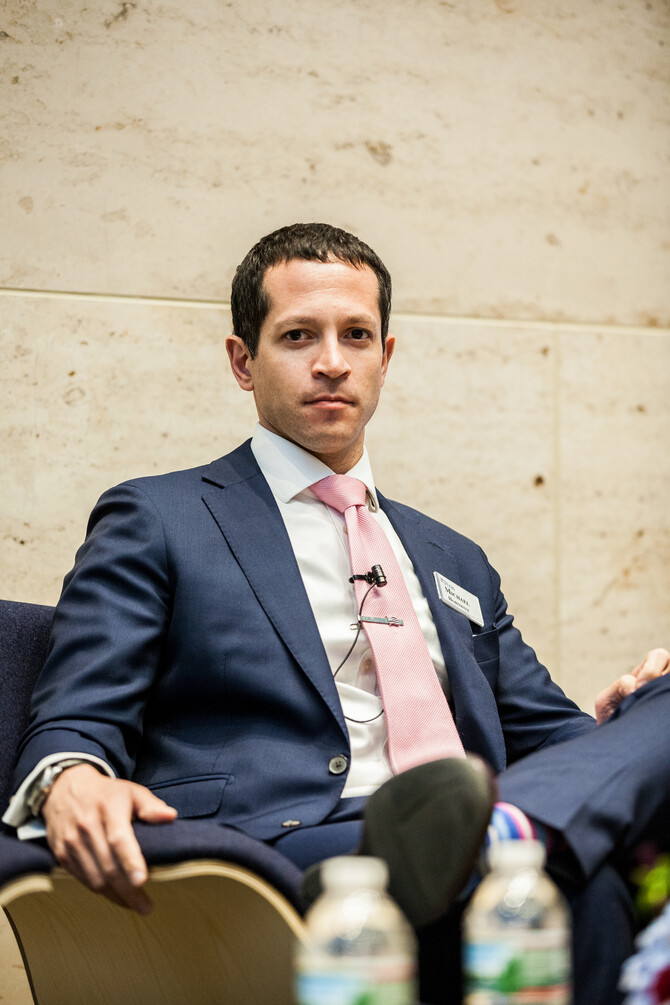Political Science Prof at Penn Explores ‘Why Leaders Fight’
World leaders’ predisposition towards aggressive military action or peacemaking can be measured by early indicators in their life-experiences.
That’s the conclusion drawn in Why Leaders Fight, a new book co-authored by Michael Horowitz, an associate professor of political science at the University of Pennsylvania.
In the book, Horowitz, a researcher in military innovation, the future of war and the role of leaders in international politics, proposes a new theory about how a leader’s decisions about war, peace and risk propensity are influenced by individual background.
Co-authored by Allan C. Stam, the dean of the Frank Batten School of Leadership and Public Policy at the University of Virginia, and Cali M. Ellis, a Ph.D. candidate in public policy and political science at the University of Michigan, Ann Arbor, Why Leaders Fight compiles the biographies of more than 2,500 famous leaders from around the world who were in power between 1875 and 2001.
It explores the military, family, occupational and educational backgrounds of people such as Fidel Castro, John F. Kennedy, Nelson Mandela, Ho Chi Minh and Winston Churchill to help explain their tendencies to initiate military aggression.
Using the largest set of data on leader backgrounds constructed to date, the authors conducted in-depth research about dictators, presidents, kings, heads of state and prime ministers, taking into account variables such as world views and tolerance for risk. They then noted when those countries went to war and for what reason.
The researchers came up with more than 30 different indicators, consisting of character traits and various life experiences, including parental loss at an early age, rebelling against a government in power, seeing war as a child or participating in combat. Based on the data, they created a scale for risk-aversion and propensity for violence, testing it to see if it could predict future aggressive behavior using military forces.
One of their findings was that many of the riskiest leaders had a common military background but lacked direct combat experience. For instance, Germany’s Kaiser Wilhelm II and Iraq’s Saddam Hussein were among those with a tendency to start wars, according to Horowitz.
“These leaders, who had the positive socialization of military experience, but without facing the risk of death, were very conflict-prone in office,” says Horowitz.
Another trait many of the riskiest leaders in history shared is prior rebel experience.
“Joining a rebel group is a dangerous endeavor to begin with, and succeeding at it, by reaching the highest office in your country, reinforces that taking up arms works,” Horowitz says. “Thus, former rebels are likely to start military conflicts after they enter office.”
Horowitz says understanding how leaders make national decisions pertaining to war is a useful tool for academics and citizens.
“Insights regarding the backgrounds of our leaders in the past can help us understand the behaviors and decision-making of the leaders in the future,” he says, adding that the book demonstrates why everyone should be paying close attention to the backgrounds of today’s global leaders, such as Kim Jong-Un of North Korea, when trying to understand how other countries will act.
“Especially in the more autocratic countries, where leaders have more flexibility in making policy choices than in democracies, leaders predisposed toward risky gambits are a lot more likely to start conflicts,” Horowitz says.
While leaders play a crucial role in global politics, he says, the research of the last 40 years has discarded their relevance.
“Who wins elections and who takes power in a country matters,” he says.
“Every four years in the United States, we argue about the background experiences of our presidential candidates and what it tells us about how they would behave in office.
“There is good reason for that. The life experiences of leaders tell us a lot about their risk propensity and how they are likely to behave. But for decades, international relations scholars ignored leaders.”
By focusing on how life experiences shape decision-making about international conflict, the book, which was published by Cambridge University Press, also has implications for psychology, public policy and history.







